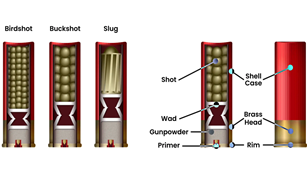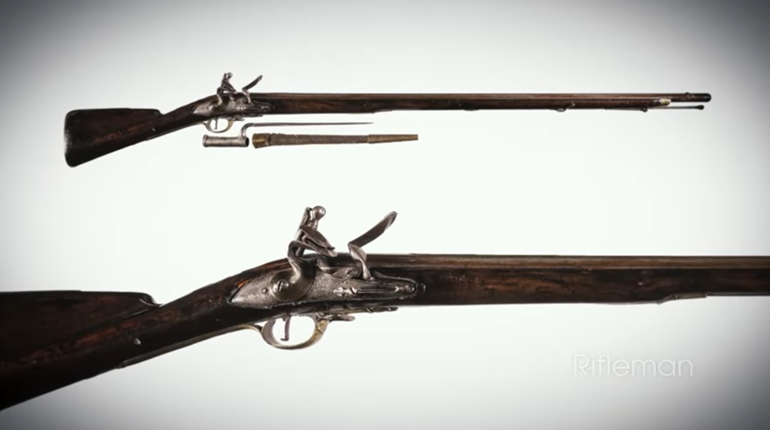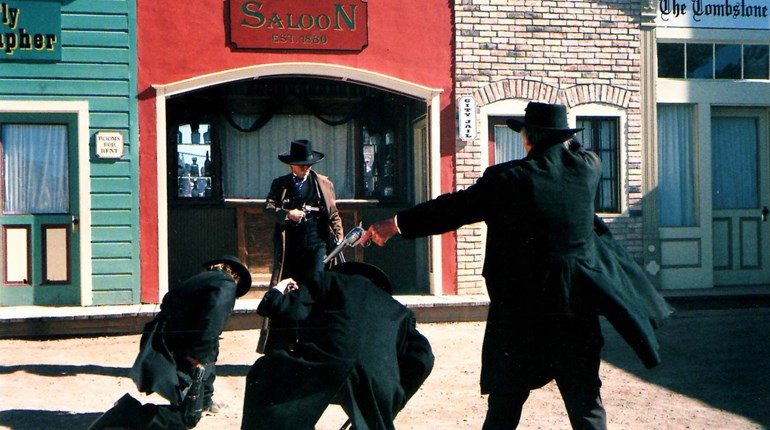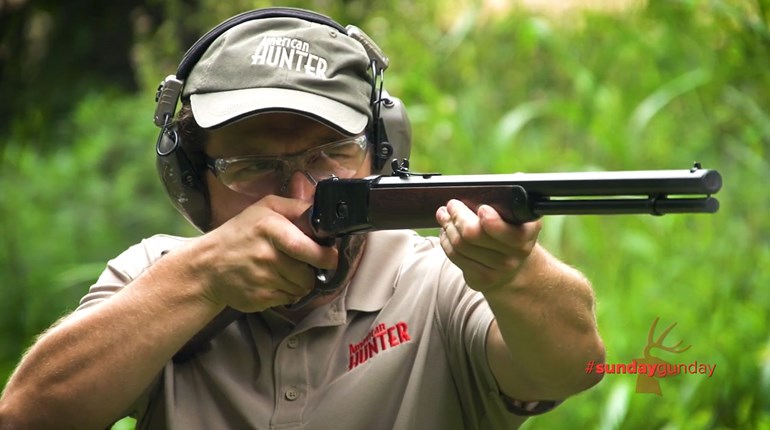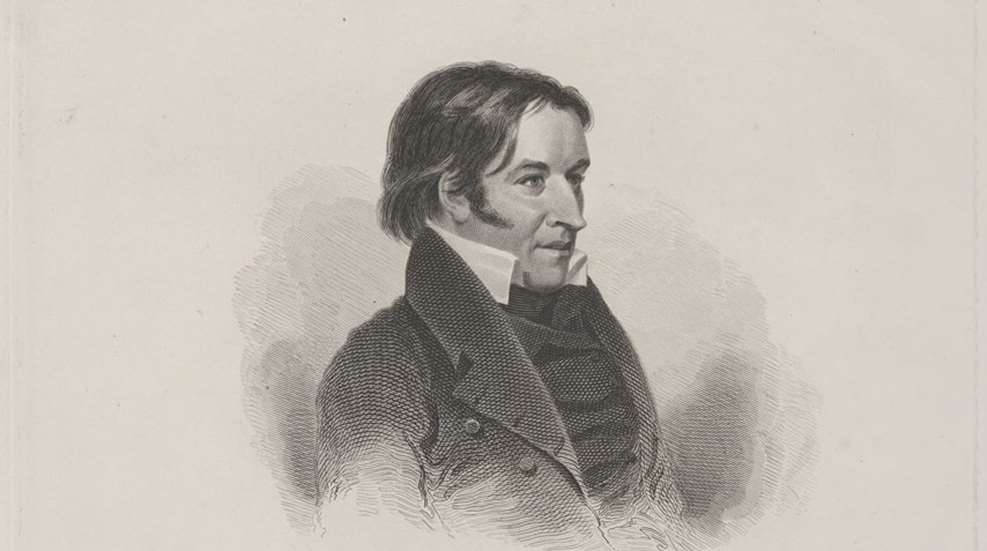
In December 1954, that catchy ditty introduced the three-part Walt Disney television miniseries Davy Crockett. And young Baby Boomer boys like me were instantly enthralled. So much so that each of us had to have his very own coonskin cap, complete with ringed tail. The caps became so popular—at least 10 million of the furry hats were sold—that the wholesale price of raccoon pelts in America soared from twenty-five cents per pound to six dollars per pound, a tremendous amount of money at the time.
It wasn’t until years later we learned that all Uncle Walt told us about Davy wasn’t necessarily so. For instance, Crockett never called himself nor signed his name Davy; it was always David. And, not surprisingly, he didn’t “Kil’t him a bar [bear] when he was only three.” Nevertheless, David Crockett (1786-1836) looms large as a legendary frontier folk-hero figure in American history. (Proving yet again that fact is often more fascinating than fiction.)
Crockett was born, raised and lived most of his life in Tennessee. A natural storyteller with little formal education, he was as much at home in the deep woods of the wilderness as he would later become in the halls of state and federal government.
Crockett was a skilled hunter and crack shot with a muzzleloading rifle. He hunted all species of game both for food and fun, preferring the excitement and danger of bear hunting with hounds most of all. And he became famous for it. How good a bear hunter was Crockett? Just one example states that from the late fall of 1825 to the spring of 1826, Crockett, by his own count, killed 105 black bears, 47 during a one-month period.
Crockett’s parents, John and Rebecca Crockett, had nine children, David being the fifth of six sons. Unfortunately, the family always seemed to be in debt. Some folks said that John, a backwoods farmer, was proverbially "snake-bit," e.g., constantly plagued by bad luck. The historian James Shackford wrote of the elder Crockett, “Poverty, as well as danger, was the birthright of the pioneer; and John Crockett inherited his full share of it.” Unfortunately, young David and the other children were expected to help pay the family’s debts. Twice, for six months each time, David lived and worked on neighboring farms to retire a payment owed.
Those experiences early in life made a strong impression on Crockett, and as he grew older he determined never to become indebted himself. But after marrying twice (his first wife died young), raising children, and trying to make ends meet working a wilderness farm, he slowly slid into the same lifestyle as his parents, with creditors constantly hounding him the remainder of his life.
Yet Crockett always had the next get-rich-quick scheme in mind, a plan that was sure to solve his financial woes. One of those schemes almost cost him his life.
He had heard that wooden barrel staves were in high demand in New Orleans, where coopers fitted the staves together to form barrels. Hiring a small crew, Crockett and his helpers cut trees and sawed lumber for an entire winter, producing some 30,000 rough staves to be taken downriver. They also constructed two large flatboats to carry their cargo, and when all was ready they shoved off from shore into Tennessee’s Obion River.
All went well until the two top-heavy flatboats, piled high with barrel staves, entered the Mississippi and were overpowered by the mighty river near Memphis. Out of control, the boats slammed into a sawyer, a huge pile of driftwood that had become stuck fast in the river bottom. Within seconds the lead boat was pulled underwater by the strong current and the second boat immediately nosed beneath the first.
All of the crew except Crockett was able to jump to safety onto the sawyer. He, however, was trapped in a cabin of one of the flatboats; his only chance of escape through a window seemingly too small for his body.
“I put my arms through and hollered as loud as I could roar, as the boat I was in hadn’t yet quite filled with water up to my head, and the hands [crew members] who were next to the raft, seeing my arms out, and hearing me holler, seized them and began to pull,” Crockett remembered.
Just as the boat was about to go under, the men jerked Crockett through the window, ripping off not only his clothes but a fair amount of skin, as well. Everyone survived, but the huge cargo of barrel staves—an entire winter’s work—was a total loss. Floating off the submerged flatboats and on down the river, the staves were never seen again.
Although David Crockett never proved to be much of a businessman, he was well liked, always the life of frontier parties and get-togethers known as frolics. So much so that friends eventually convinced him to enter Tennessee politics, representing the backwoods people of the region. Elected to the Tennessee state legislature in 1821, in 1827 he was elected to the U.S. Congress, House of Representatives.
Crockett’s political career was going well in what was then known as Washington City (today’s Washington D.C.), until he began opposing many of President Andrew Jackson’s policies. The policy Crockett most vehemently denounced was the Indian Removal Act. Crockett’s stance on the issue was somewhat ironic, as earlier in life as a Tennessee militiaman he had fought against the Creek Indians, a tribe in the southeastern United States.
The bill became law in 1830, forcing Indian tribes living in the eastern U. S. to relocate west of the Mississippi. The removal from their ancestral lands was just too much for some tribe members to endure, many dying along the famous “trail of tears” that led west. Crockett said of the Indian Removal Act, “I believed it was a wicked, unjust measure...I voted against this Indian bill, and my conscience yet tells me that I gave a good honest vote, and one that I believe will not make me ashamed in the day of judgement.”
Crockett lost his race for reelection to the U.S. House of Representatives in 1835, consequently becoming so disillusioned and embittered with politics that he left not only Washington but Tennessee, too, and lit out for Texas hoping to make a fresh start in life. It was not to be. Quickly drawn into the Texas Revolution demanding independence from Mexico, he was one of the participants in the Battle of the Alamo...where he was killed at age 49. David Crockett had arrived in Texas just two months earlier.
Two years before his tragic death, Crockett had penned his best-selling autobiography, A Narrative of the Life of David Crockett, of the State of Tennessee. In the book, he leaves us this advice:
I have this rule for others, when I’m dead:
Be always sure you’re right—THEN GO AHEAD!











